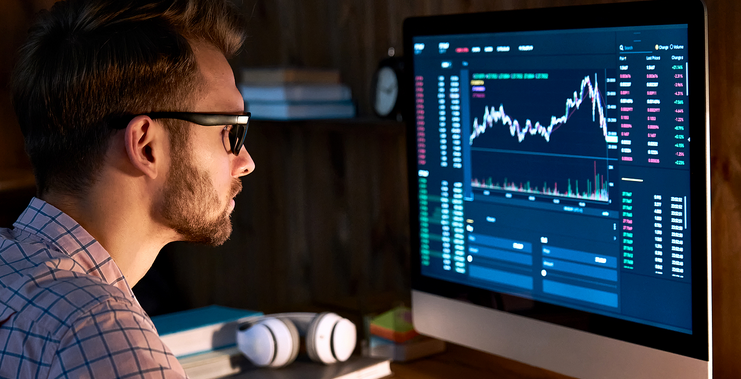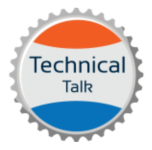In the fast-paced world of finance, data is the lifeblood of decision-making. With the rise of technology, computers have become indispensable tools in financial analysis and trading. This article explores how computers have transformed financial analysis, from data processing to algorithmic trading.

The Data Deluge
Financial analysis revolves around data, and the financial industry generates colossal amounts of it every second. This data encompasses stock prices, economic indicators, news articles, social media sentiments, and more. Before computers, processing and analyzing this data were time-consuming and error-prone tasks.
Computers have revolutionized data management in finance. They can ingest and process vast datasets in real-time, providing analysts with up-to-the-minute information. This speed and accuracy are essential for traders and investors seeking a competitive edge. For more information on data-driven aspects of finance and online slots, you can visit https://www.casinous.com/online-slots/.
Quantitative Analysis
Financial analysts rely heavily on quantitative analysis to make informed decisions. This involves using mathematical models to evaluate financial instruments, risk, and potential returns. Quantitative analysts, known as “quants,” build and test these models.
Computers are indispensable in quantitative analysis. They execute complex mathematical calculations at lightning speed, making it possible to develop, backtest, and refine quantitative models. This automation has democratized quantitative analysis, allowing even small firms to compete with Wall Street giants.
Algorithmic Trading
Algorithmic trading, or algo trading, is a prime example of how computers have transformed financial markets. Algo trading involves using algorithms to execute trading strategies automatically. These algorithms consider a multitude of factors, such as market conditions, price movements, and news events, to make split-second trading decisions.
Algo trading is a game-changer for the financial industry. Computers can execute thousands of trades per second, far beyond human capacity. This not only increases the efficiency of trading but also minimizes the impact of emotions on decision-making, a common pitfall for human traders.
Risk Management
Effective risk management is paramount in finance. Computers play a vital role in risk assessment and mitigation. Risk models, which estimate the potential losses associated with different investments or strategies, rely on computing power to process vast datasets and perform complex simulations.
Moreover, computers monitor trading activities in real-time, flagging unusual patterns that might indicate excessive risk-taking. This early warning system helps prevent financial disasters by triggering interventions or trading halts.
Portfolio Management
Portfolio management involves constructing and maintaining investment portfolios that align with investors’ goals and risk tolerance. Computers have made portfolio management more efficient through tools like portfolio optimization software.
These programs use historical data and mathematical algorithms to suggest optimal portfolio allocations. They consider factors like expected returns, volatility, and correlations among assets. This helps investors make informed decisions about asset allocation and risk management.
High-Frequency Trading
High-frequency trading (HFT) is a subset of algo trading that leverages computers’ speed and efficiency to execute a large number of orders within fractions of a second. HFT firms use advanced algorithms and cutting-edge technology to gain an edge in the market.
While controversial, HFT has become a dominant force in financial markets. Computers enable HFT firms to capitalize on tiny price discrepancies and market inefficiencies, earning profits in the process. However, this lightning-fast trading has raised concerns about market stability and fairness.
Challenges and Concerns
Despite their numerous advantages, computers in financial analysis and trading also bring challenges and concerns. One prominent issue is cybersecurity. The financial industry is a prime target for cyberattacks, given the potential for financial gain. Protecting sensitive financial data and trading algorithms is a constant battle.
Market stability is another concern. The proliferation of algorithms and automated trading strategies has led to flash crashes and sudden, unexplained market swings. Regulators must grapple with how to ensure orderly markets in this automated landscape.
The Future of Finance
Computers’ role in financial analysis and trading will continue to evolve. Artificial intelligence (AI) and machine learning are becoming increasingly important, enabling computers to analyze vast datasets for patterns and insights that were previously unimaginable.
Moreover, blockchain technology, the backbone of cryptocurrencies like Bitcoin, is reshaping the financial industry. It offers secure, transparent, and efficient ways to record financial transactions, reducing the need for intermediaries.
Conclusion
In conclusion, computers have transformed financial analysis and trading in unprecedented ways. They’ve made data processing faster and more accurate, enabled sophisticated quantitative analysis, and ushered in the era of algorithmic and high-frequency trading. While challenges remain, technology will continue to shape the future of finance, offering new opportunities and solutions for industry professionals and investors alike.

